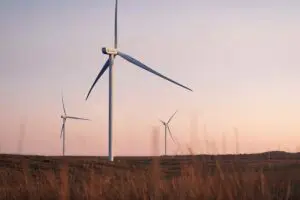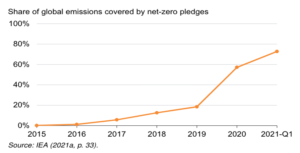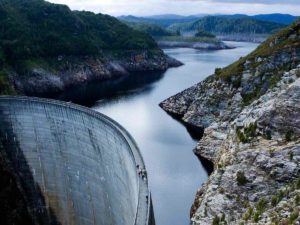A group of Australia’s largest greenhouse gas emitters have committed to cutting supply chain emissions, as part of a newly formed Australian Industry Energy Transitions Initiative.
The initiative will target the supply chains of energy- and emissions-intensive goods, including the production of steel, aluminium, LNG, chemicals and other metals, and will see companies and industry partners develop a pathway to the decarbonisation of these supply chains.
Under the initiative, major industrial manufacturers will commit to driving down emissions in supply chains by identifying opportunities to invest in energy efficiency and fuel switching, including by moving more of their energy consumption to sources of renewable electricity.
It has already gained buy-in from a range of major industrial players, including BHP, Woodside, BlueScope and a number of gas producers, including BP Australia, APA Group, and Australian Gas Infrastructure Group. The early signatories have coverage of 13.6 per cent of Australia’s industrial emissions and around $160 billion in exports.
The Energy Transitions Initiative will be convened by ClimateWorks Australia and Climate-KIC Australia, along with the Energy Transition Commission. The group will be chaired by the chancellor of Monash University, and former Australian of the Year Simon McKeon.
“We know that we can find solutions more quickly and start implementing them if we’re encouraging collaborative learning and knowledge sharing, especially when it comes to new technology,” McKeon said.
“This initiative provides a platform to generate knowledge and test action through on-the-ground projects that support industry to realise the opportunities of a decarbonising global economy.”
CSIRO and the Rocky Mountain Institute will both provide research support to the initiative and along with Climate-KIC, ClimateWorks Australia will support the work of the initiative and seize the opportunity to tackle supply chain emissions as a chance to make a positive impact beyond Australia’s borders.
“Emissions aren’t contained within national borders and aren’t confined to what happens within a company’s four walls. That’s why a supply chain approach is vital,” ClimateWorks Australia CEO Anna Skarbek said.
“Globally, many countries and businesses are already moving to decarbonise supply chains in heavy industry sectors. There are huge opportunities for Australian businesses if they take a proactive approach to getting into this race.”
Early work of the initiative will focus on industrial operations in Western Australia and will seek to identify emissions reductions in the mining and resources sector.
“With mining and heavy industries driving the economy in Western Australia, focusing some of our efforts there will really demonstrate what is achievable nation-wide,” CEO of Climate-KIC Australia Chris Lee said.
“Taking a systems approach and joining up players within and across supply chains will help move past barriers that individual companies face when reducing emissions as well as support the realisation of new opportunities.”
The initiative has received support from the Australian Renewable Energy Agency, through a $300,000 funding grant.
“This initiative has some ‘heavy hitters’ at the table and we’re expecting the collaboration will allow for the exchange of ideas and knowledge that will benefit across sectors and supply chains,” ARENA CEO Darren Miller said.
Additional funding has been provided by the Australian Industry Group and the Australian Industry Greenhouse Network. Schneider Electric will serve as a technology partner with the initiative, along with financial institutions National Australia Bank and Australian Super.
“We have already achieved significant increases in energy efficiency and reductions in emissions for corporations across the globe through decarbonisation, electrification, and other energy efficiency solutions,” Schneider Electric president for the Pacific Gareth O’Reilly said.
“This initiative is vital for our climate and our planet, and every company has a responsibility to take part. Increasing energy efficiency actually benefits the bottom line, there is no excuse to not contribute to combating climate change.”









